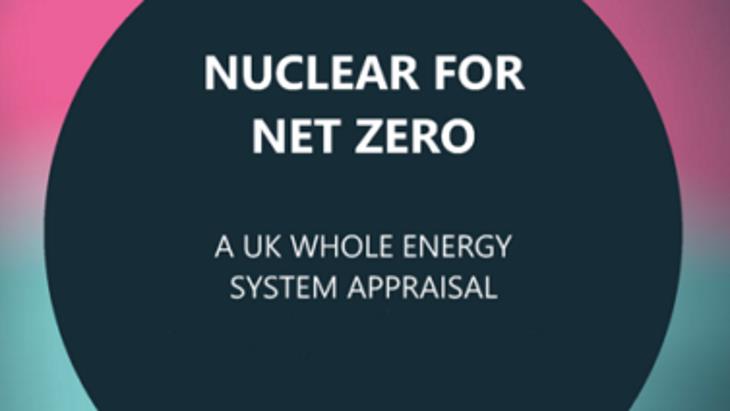Birmingham, England-based Energy Systems Catapult - an independent, not-for-profit organisation for industry, government, academia and research - also says a small modular light water reactor (SMR) programme should proceed, and that SMR designs that can deliver cogeneration of heat and power are "worth particular attention".
The Nuclear for Net Zero report also describes how nuclear could also play a big part in driving the growth of the hydrogen economy and providing district heating, placing the sector at the heart of deep decarbonisation across the UK, where transport, buildings and industry will need to reduce emissions arising from burning fossil fuels, predominantly gas.
"Reaching net zero by 2050 is a massive national endeavour - and this detailed, expert report demonstrates that all but removing polluting gas will need low-carbon sources of power to massively expand. Nuclear is a significant and integral part of that mix for the future," NIA Chief ExecutiveTom Greatrex said. "Costs can be reduced through repeat build and new construction techniques - but also, and most significantly, with a different approach to financing. It is imperative the government get on and conclude their review of this, so the 'no regrets' option highlighted by the Energy Systems Catapult can make progress. With thousands of jobs in construction, operation and the supply chain, getting the new fleet of nuclear power stations this report shows are needed underway can also boost the economy at a critical time, while also helping get closer to the net-zero ambition. There is no time to lose."
Horizon said it was confident it could help meet the UK's need for new nuclear power. The UK subsidiary of Japan’s Hitachi, Horizon, suspended its new-build projects early last year even though it had made progress with its plans to provide at least 5.4 GWe of new capacity across two sites - Wylfa Newydd, in north Wales, and Oldbury-on-Severn, in southwest England - by deploying Hitachi-GE UK advanced boiling reactors.
Horizon CEO Duncan Hawthorne said Energy Systems Catapult's report showed "yet again" how nuclear, alongside other clean technologies, can and must be part of the UK’s low-carbon future.
"It also goes to the heart of why we are determined to try and ensure that our development at Wylfa Newydd is restarted. An operational Wylfa Newydd will provide enough clean electricity to meet all of Wales’ power demand, domestic and industrial. This would, effectively, make Wales’ electricity supply Net Zero by the early 2030s, delivering on the UK government’s pledge decades early, and also helping to answer the Welsh government's declaration of a Climate Change Emergency," Hawthorne said.
The report employs Energy System Modelling Environment (ESME), which has been used by the Committee on Climate Change, industry, academia and the UK government. Energy Systems Catapult says ESME is independent of sector interests and identifies cost-optimised decarbonisation pathways across the whole economy.















